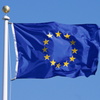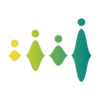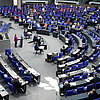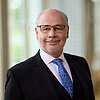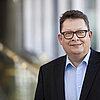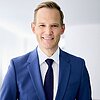Statutory health insurance (SHI)
In Germany, health insurance coverage is provided by two different systems: the SHI and the private health insurance (PHI). The SHI scheme provides reliable health protection to almost 90 percent of the population. More than 70 million citizens are insured with a SHI fund to receive the best medical care possible.
Solidarity as a matter of principle
The SHI funds operate based on the principle of solidarity: Contributions are determined by the members’ financial capacities, while insurance benefits are the same for everyone. This means, the almost 100 health insurance funds that currently exist grant medically necessary services both to their paying members and to the approximately 16 million people who are co-insured free of charge as family members. Hence, the fundamental principle of the statutory health insurance is the solidarity-based sharing of burden – between the healthy and the sick, between those with higher and lower incomes, between the young and the elderly, between singles and families.
Insurance is compulsory
A severe illness can set in at any age and when this happens, treatment costs can very quickly be incurred that exceed the income level and assets of those affected. In a modern welfare state, however, no citizen should be without protection in the event of sickness. This is why all citizens who reside in Germany are required to take out health insurance. People without any other health insurance coverage are therefore required to have statutory health insurance if they previously had held statutory health insurance or match the criteria for statutory health insurance. If this is not the case, they are eligible for private health insurance (PHI) and must also take out health insurance.
In addition, SHI members must be insured in the social long-term care insurance.
The principle of self-administration
In contrast to other countries such as Great Britain, Sweden or Italy, in Germany healthcare is not ensured exclusively by the State or the Government. In Germany, we have the principle of self-administration. This means, while the State specifies the statutory framework conditions – most of which are stipulated in the Fifth Book of the German Social Code (SGB V) –, the agencies of the healthcare system organise themselves to ensure the delivery of healthcare on their own responsibility.
Among the organisations that form the system of self-administration are the statutory health insurance funds as well as the associations of SHI-accredited physicians and dentists. They are public-law corporate bodies equipped with sovereign powers.
You do not have health insurance coverage?
If most recently you were insured in the statutory health insurance, please contact your last health insurance fund or its legal successor. If you were previously insured with a private health insurance fund, please contact your last private health insurer, another health insurance company or a consumer advice agency. Should you have had neither statutory nor private health insurance up until now, you can contact any statutory health insurance fund to find out whether you fulfil the criteria for statutory or private insurance. For further information on this topic, you can also call the citizens’ hotline of the Federal Ministry of Health at:
Consultation hours:
Monday to Wednesday from 8 a.m. to 4 p.m.
Thursday from 8 a.m. to 6 p.m.
Friday from 8 to 12 a.m.
People with hearing loss or hearing impairment can reach the consultation service of the Federal Ministry of Health for deaf and hearing-impaired persons via the sign language phone
(video telephony) at: www.gebaerdentelefon.de/bmg/
or via email to: info.gehoerlos(at)bmg.bund.de.
The health insurance funds conclude contracts with service providers, collect contributions from members and employers and pay for the services provided. The self-governing body of a health insurance fund is its supervisory board. It consists of honorary representatives, who are elected every six years by the SHI fund’s members and their employers in the social insurance elections. The primary tasks of the supervisory board are to adopt amendments to the insurer’s by-laws and to supervise the full-time board of directors, which is responsible for carrying out the day-to-day administrative tasks of the health insurance fund.
The Land-level associations of SHI-accredited physicians/dentists are the competent bodies in the field of panel doctor/dentist-provided care. In each respective Federal Land (or in case of North Rhine-Westphalia, the jurisdictions of competence ‘Nordrhein’ and ‘Westfalen-Lippe’), these associations represent the interests of physicians and dentists who are registered to treat patients with SHI coverage – the ‘panel doctors/dentists’. Their bodies are the representatives’ assembly, which are elected by the panel doctors/dentists, and the full-time board of directors.
Both the health insurance funds and the associations of SHI-accredited physicians/dentists must transparently communicate to their members how their organisations’ resources are used. This also means that the administrative expense ratio (i.e. the share of contribution rates that is used for personnel and materials costs) must be indicated separately and the remuneration of members of the board of directors must be disclosed.
The aforementioned institutions form three umbrella organisations that are public-law corporate bodies and operate nationwide: the National Association of Statutory Health Insurance Funds, the National Association of Statutory Health Insurance Physicians (KBV) and the National Association of Statutory Health Insurance Dentists (KZBV).
In contrast, the German Hospital Federation (DKG) is organised under private law. As an umbrella organisation of all Land-level and national hospital associations, it represents the interests of hospitals at Federal level.
The most important body of the self-administration structure
The Federal Joint Committee (G-BA) is the highest decision-making body in the joint self-administration structure of our healthcare system. It is composed of representatives of the medical profession (KBV and KZBV), hospitals (DKG) and health insurance funds (National Association of Statutory Health Insurance Funds) as well as three impartial members. To advance the interests of patients, people with chronic illness or those with a disability, their respective Federal-level advocacy organisations have the right to submit petitions to and take part in discussions of the G-BA. The Federal Joint Committee deliberates and decides upon the benefits to be covered by the SHI.
When making decisions, the Federal Joint Committee draws on generally accepted current medical findings and examines the diagnostic value, the therapeutic benefit, the medical necessity and the cost-effectiveness of services. In addition, the G-BA fulfils important tasks in the field of quality management and quality assurance of medical care.
The Federal Joint Committee passes directives that are binding for those insured with statutory health insurance, for the SHI funds and for the doctors/dentists as well as other service providers involved in the delivery of SHI services and benefits. In some sections of this guide, reference is made to G-BA directives, which are all published on its Website.







